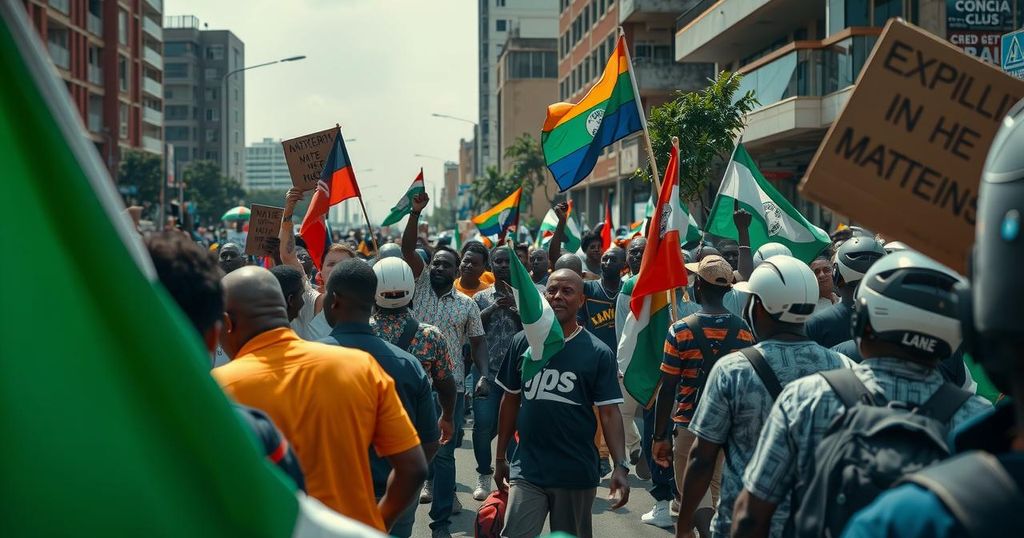Nigerians Protest Government’s Economic Policies Amidst Soaring Food Prices

Nigerians are protesting nationwide against severe economic hardships, marked by soaring food prices and government policies deemed ‘anti-poor’. Demonstrations occur despite risks of police violence and arrests, with calls for policy changes and release of detained protesters. Amid a backdrop of significant food insecurity and discontent with leadership, the protests symbolize widespread frustration over economic mismanagement.
Nigerians have once again taken to the streets in significant numbers to voice their frustration with the government amid increasing economic hardships marked by unprecedented food inflation. Protests erupted across numerous cities, including the capital, Abuja, where police responded with tear gas against demonstrators demanding an end to poverty and poor governance. This movement follows a similar wave of protests from August, which had turned fatal for several individuals and resulted in mass arrests. Protesters, supported by various advocacy groups such as the Take it Back movement, highlighted their discontent on Nigeria’s 64th Independence Day, contending that there is little to celebrate when millions are struggling to survive while officials enjoy lavish lifestyles. Key demands included reversing recent economic measures recommended by the World Bank that have exacerbated an already dire cost of living crisis, as well as reducing electricity prices and releasing arrested protesters.
Nigeria is currently facing its highest food inflation rates in decades, leading to significant economic challenges for the populace. This inflation crisis has been attributed to a combination of factors, including the removal of long-standing fuel subsidies, a unified foreign exchange market implemented by President Bola Ahmed Tinubu, and persistent insecurity disrupting agricultural production. As domestic food prices soar, essential staples have become unaffordable for many, further heightening public discontent and prompting organized protests against what is viewed as government indifference. After recent and fatal protests, demonstrators continue to gather, despite the risks of police brutality, indicating a growing frustration with economic policies that disproportionately affect the poor.
The ongoing protests reflect deep-seated frustration among Nigerians regarding their government’s economic policies and perceived disconnect from the realities faced by ordinary citizens. As demonstrators persist in their demands for policy changes and greater accountability from officials, the government faces increasing pressure to respond. The lack of substantial relief amid skyrocketing inflation and high costs of living continues to fuel unrest, indicating that the protests are unlikely to subside without concerted action from the government to address the fundamental issues at hand.
Original Source: www.aljazeera.com







